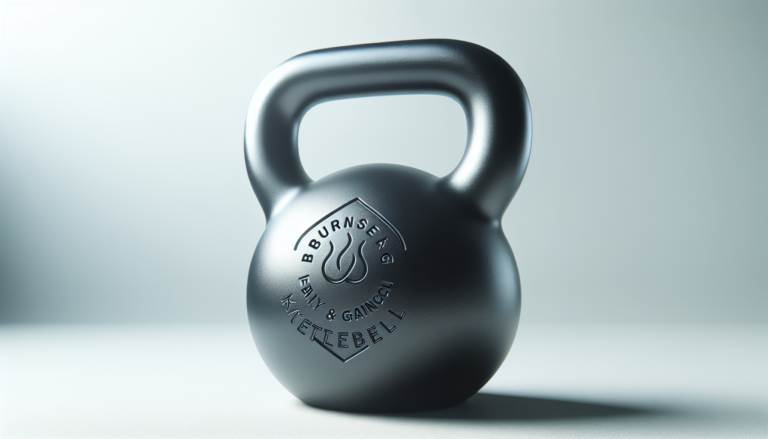How To Lose Belly Fat After Menopause
Are you struggling with stubborn belly fat after menopause? It’s a common concern for many women, but the good news is that there are effective strategies to help you shed those extra pounds. In this article, we will explore simple yet powerful tips on how to lose belly fat after menopause. Whether you have tried various diets or exercise routines in the past, we will provide you with practical insights that can make a significant difference in achieving your weight loss goals. Say goodbye to the frustration and hello to a healthier, slimmer you!
Understanding Belly Fat and Menopause
Menopause is a period of hormonal changes in a woman’s body that typically occurs between the ages of 45 and 55. During this time, the production of estrogen and progesterone gradually decreases, leading to various physical and emotional changes. One common side effect of menopause is weight gain, particularly in the abdominal area. This weight gain is often accompanied by an increase in belly fat, which can be frustrating and difficult to lose.
The role of menopause in weight gain
Menopause itself does not directly cause weight gain, but the hormonal changes that occur during this time can contribute to it. The decrease in estrogen levels can lead to a slower metabolism, making it easier to gain weight and harder to lose it. Additionally, changes in hormone levels can affect where fat is stored in the body, resulting in an accumulation of belly fat.
Why belly fat is particularly common during menopause
Belly fat, also known as visceral fat, is particularly common during menopause due to a combination of hormonal and lifestyle factors. As estrogen levels decline, fat redistributes from the hips and thighs to the abdominal area. This type of fat is more metabolically active and can increase the risk of various health issues, including heart disease, diabetes, and certain cancers. Furthermore, age-related muscle loss can reduce the body’s ability to burn calories, leading to an increase in belly fat.
Health risks associated with abdominal fat
The accumulation of belly fat can have detrimental effects on health. Visceral fat is not simply an aesthetic concern; it is an active tissue that releases harmful substances into the bloodstream. This can lead to an increased risk of cardiovascular disease, high blood pressure, insulin resistance, and inflammation. It is important to address abdominal fat not only for cosmetic reasons but also to maintain overall health and well-being.
Factors that influence belly fat accumulation
Various factors contribute to the accumulation of belly fat during menopause. Some of these factors are beyond your control, such as genetics and age. However, there are also lifestyle factors that can influence belly fat accumulation. These include sedentary behavior, poor diet, lack of exercise, and high-stress levels. By understanding these factors, you can make changes to your lifestyle to prevent or reduce the accumulation of belly fat.
Adopting a Healthy Diet
A balanced diet is essential for overall health and weight management, especially during menopause. Proper nutrition provides the body with the necessary nutrients to function optimally and helps regulate hormone levels. Here are some tips for adopting a healthy diet:
Importance of a balanced diet
A balanced diet consists of a variety of foods from different food groups. It includes a combination of carbohydrates, proteins, and healthy fats, as well as vitamins and minerals. By consuming a balanced diet, you provide your body with the necessary nutrients while maintaining a healthy weight.
Choosing nutrient-dense foods
Opt for nutrient-dense foods that provide a high amount of vitamins, minerals, and other beneficial compounds per calorie. These include fruits, vegetables, lean proteins, whole grains, and healthy fats. Incorporating these foods into your meals will not only contribute to weight loss but also support overall health.
Reducing calorie intake for weight loss
To lose belly fat, it is important to consume fewer calories than you burn. This can be achieved by reducing portion sizes, choosing lower-calorie foods, and being mindful of your overall calorie intake. However, it is essential to do this in a healthy and sustainable manner, avoiding extreme calorie restriction or crash diets.
Including fiber-rich foods in your meals
Fiber-rich foods are beneficial for weight loss and overall health. They help you feel fuller for longer, regulate blood sugar levels, and improve digestion. Incorporate foods such as fruits, vegetables, whole grains, and legumes into your meals to increase your fiber intake.
Avoiding processed and sugary foods
Processed foods and sugary drinks are often high in calories, unhealthy fats, and added sugars. These can contribute to weight gain and increase the risk of chronic diseases. Limit your consumption of processed snacks, fast food, sugary beverages, and desserts to support a healthy diet.
Hydrating adequately
Drinking enough water is essential for overall health and can also aid in weight loss. Water helps boost metabolism, suppresses appetite, and flushes out toxins from the body. Aim to drink at least eight glasses of water per day and replace sugary drinks with water or unsweetened beverages.
Incorporating Regular Exercise
Regular exercise is crucial for weight loss, especially during menopause when the body’s metabolism tends to slow down. Engaging in physical activity can help burn calories, build muscle mass, and improve overall fitness. Here are some tips for incorporating regular exercise into your routine:
Benefits of exercise for weight loss after menopause
Exercise has numerous benefits for weight loss after menopause. It helps increase muscle mass, which in turn boosts metabolism and calorie burning. Regular physical activity also improves cardiovascular health, reduces the risk of chronic diseases, and enhances mood and overall well-being.
Choosing the right types of exercise
It is important to choose the right types of exercise that are suitable for your fitness level and overall health. Low-impact exercises, such as walking, swimming, and cycling, are great options for beginners or those with joint issues. Higher-impact activities, such as running or aerobic classes, can provide a more intense workout.
Including cardiovascular exercises
Cardiovascular exercises, also known as aerobic exercises, are great for burning calories and improving cardiovascular health. These exercises increase your heart rate and breathing, helping you burn excess fat and improve overall fitness. Engage in activities such as brisk walking, jogging, dancing, or cycling to incorporate cardiovascular exercise into your routine.
Incorporating strength training
Strength training is essential for building lean muscle mass, improving metabolism, and toning the body. Include exercises such as weightlifting, bodyweight exercises, or resistance band workouts to strengthen your muscles. Aim to do strength training exercises at least twice a week, targeting different muscle groups.
Engaging in activities to improve flexibility and balance
As we age, flexibility and balance become increasingly important for overall health and injury prevention. Incorporate activities such as yoga, Pilates, or tai chi into your routine to improve flexibility, balance, and core strength. These exercises can also help relieve stress and promote relaxation.
Finding enjoyable physical activities
To stay motivated and make exercise a regular part of your lifestyle, it is important to find activities that you enjoy. Whether it’s dancing, hiking, playing a sport, or joining a group fitness class, find activities that bring you joy and make you look forward to being active.
Managing Stress Levels
Stress, both physical and emotional, can have a significant impact on weight gain, especially around the abdominal area. High stress levels can lead to an increase in the production of cortisol, a stress hormone that promotes the storage of fat, particularly in the belly. Here are some techniques for managing stress levels:
Understanding the connection between stress and weight gain
Stress triggers various physiological responses in the body, including an increase in appetite and the desire for comfort foods. These responses can lead to increased calorie intake and weight gain. Chronic stress can also disrupt sleep patterns, affect hormone levels, and contribute to emotional eating, all of which can lead to belly fat accumulation.
Using stress management techniques
Engage in activities that help you manage stress effectively. This can include practices such as deep breathing exercises, journaling, spending time in nature, or engaging in hobbies or activities that bring you joy. Find what works best for you and prioritize self-care to reduce stress levels.
Practicing relaxation techniques
Relaxation techniques such as meditation, deep breathing, or progressive muscle relaxation can help calm the mind and reduce stress. These practices promote a sense of relaxation, improve sleep quality, and can help regulate cortisol levels, leading to a reduction in belly fat.
Engaging in mindfulness or meditation
Mindfulness and meditation involve focusing your attention on the present moment, letting go of worries and anxieties. These practices can help reduce stress, improve self-awareness, and promote mindful eating. Incorporate mindfulness or meditation into your daily routine to manage stress and support weight loss efforts.
Getting adequate sleep
Sleep deprivation can contribute to weight gain and make it more challenging to lose belly fat. Aim for seven to nine hours of quality sleep each night. Establish a relaxing bedtime routine, create a sleep-friendly environment, and minimize the use of electronic devices before sleep to optimize your sleep patterns.
Seeking professional help if needed
If stress becomes overwhelming or if you are struggling to manage it on your own, do not hesitate to seek professional help. A therapist, counselor, or healthcare professional can provide guidance, support, and tools to help you cope with stress effectively.
Getting Enough Sleep
Adequate sleep is crucial for weight management and overall health, especially during menopause. Lack of sleep can disrupt hormone levels, increase appetite, and decrease metabolism, making it harder to lose belly fat. Here are some tips for getting enough quality sleep:
The importance of quality sleep for weight management
Quality sleep plays a vital role in weight management. During sleep, the body repairs and regenerates cells, regulates hormones, and supports overall well-being. Adequate sleep is essential for balancing hunger hormones, controlling cravings, and promoting optimal metabolism.
Establishing a regular sleep schedule
Establishing a regular sleep schedule can help regulate your body’s internal clock and promote better sleep. Try to go to bed and wake up at the same time every day, even on weekends. Consistency in sleep patterns can improve sleep quality and make it easier to fall asleep and wake up refreshed.
Creating a sleep-friendly environment
Create a sleep-friendly environment that promotes relaxation and restful sleep. Keep your bedroom cool, dark, and quiet. Remove electronic devices and minimize external stimuli that may interfere with your sleep. Invest in a comfortable mattress, pillows, and bedding that suit your preferences.
Practicing good sleep hygiene
Good sleep hygiene involves adopting healthy habits and behaviors that promote quality sleep. Limit exposure to screens before bedtime, avoid caffeine and stimulating activities close to bedtime, and create a relaxing bedtime routine. Engage in activities such as reading a book, taking a warm bath, or practicing relaxation techniques to wind down before sleep.
Addressing sleep disorders with medical support
If you suspect that you have a sleep disorder, such as insomnia or sleep apnea, it is crucial to seek medical support for diagnosis and treatment. Sleep disorders can significantly impact sleep quality and overall health. A healthcare professional can provide appropriate guidance and treatment options to address your specific sleep concerns.
Avoiding Crash Diets or Quick Fixes
When trying to lose belly fat after menopause, it is essential to avoid crash diets or quick fixes. These approaches often result in short-term weight loss followed by weight regain, and they can have negative effects on your physical and mental health. Here’s why you should steer clear of crash diets:
Understanding the dangers of crash diets
Crash diets typically involve severe calorie restriction or the elimination of entire food groups. While they may lead to initial weight loss, they can also cause nutrient deficiencies, muscle loss, and a slowed metabolism. Crash diets are unsustainable in the long term and can lead to a cycle of weight loss and regain.
Avoiding extreme calorie restriction
Extreme calorie restriction is not a healthy or sustainable approach to weight loss. Severely cutting calories can deprive your body of essential nutrients, lower energy levels, and slow down metabolism. It can also increase the likelihood of binge eating and feelings of deprivation, which can hinder your weight loss efforts.
Choosing sustainable and long-term approaches
Instead of pursuing quick fixes, focus on sustainable lifestyle changes that promote long-term weight loss and overall health. Adopt a balanced diet, engage in regular exercise, manage stress levels, and prioritize restorative sleep. These lifestyle changes provide a solid foundation for maintaining a healthy weight and reducing belly fat over time.
Setting realistic weight loss goals
It is important to set realistic weight loss goals that are attainable and healthy. Aim for a gradual and steady weight loss of 1-2 pounds per week. Remember, losing weight too quickly can result in muscle loss, nutrient deficiencies, and rebound weight gain. Be patient with yourself and celebrate each small victory along the way.
Applying Hormone Replacement Therapy (HRT)
Hormone replacement therapy (HRT) is a treatment option that involves supplementing the body with hormones, typically estrogen and progesterone, to alleviate menopausal symptoms. While HRT can have various benefits, including reducing hot flashes and improving bone health, its impact on weight management is still a topic of debate. Here’s what you need to know about HRT:
Consulting a healthcare professional for HRT options
If you are considering HRT, it is essential to consult a healthcare professional to understand the benefits, risks, and potential side effects. A healthcare provider can evaluate your individual needs and guide you in choosing the most appropriate HRT option based on your symptoms, medical history, and preferences.
Understanding the potential benefits of HRT for weight management
HRT may have some potential benefits for weight management during menopause, including a reduction in abdominal fat accumulation. Estrogen supplementation can help regulate metabolism, improve body composition, and prevent muscle loss. However, the impact of HRT on weight loss is still not well-understood, and individual results may vary.
Considering the risks and side effects of HRT
HRT has potential risks and side effects that need to be carefully considered. These can include an increased risk of blood clots, stroke, breast cancer, and cardiovascular disease. The decision to pursue HRT should be based on a thorough evaluation of your individual health profile and a discussion with a healthcare professional.
Engaging in Targeted Abdominal Exercises
While spot reduction of fat is not possible, engaging in targeted abdominal exercises can help strengthen the core muscles and tone the abdominal area. When combined with a healthy diet and regular exercise, these exercises can contribute to a more defined midsection. Here’s how to incorporate targeted abdominal exercises into your fitness routine:
The benefits of toning abdominal muscles
Toning abdominal muscles can help improve posture, support your spine, and enhance core stability. Strong abdominal muscles also contribute to overall strength and balance, making daily activities easier and reducing the risk of injuries.
Including exercises targeting the core muscles
Incorporate exercises that target the core muscles into your exercise routine. These can include exercises such as planks, bridges, Russian twists, and bicycle crunches. Focus on engaging the abdominal muscles while performing these exercises to maximize their effectiveness.
Incorporating planks, crunches, and other effective exercises
Planks and crunches are popular exercises that effectively target the abdominal muscles. Planks engage the entire core, including the rectus abdominis and transverse abdominis, while crunches primarily work the rectus abdominis. Additionally, exercises such as mountain climbers, flutter kicks, and leg raises can also help strengthen the abdominal muscles.
Seeking guidance from a fitness professional
If you are new to abdominal exercises or have any concerns about your form or technique, it can be beneficial to seek guidance from a fitness professional. They can provide personalized instruction and ensure that you are performing the exercises correctly and safely.
Maintaining Consistency and Patience
When it comes to losing belly fat after menopause, it is important to remember that it takes time and consistency. Embrace a long-term approach to weight loss and health, and be patient with yourself along the journey. Here’s how to stay consistent and maintain a positive mindset:
Understanding that losing belly fat takes time
Losing belly fat, especially after menopause, takes time and consistency. Do not expect immediate results or get discouraged if progress seems slow. Focus on the long-term benefits of adopting healthy habits and maintain a positive mindset throughout your weight loss journey.
Staying consistent with healthy habits
Consistency is key when it comes to losing belly fat and maintaining a healthy weight. Stay committed to your healthy diet, regular exercise routine, stress management techniques, and sleep hygiene practices. Consistency with these habits will yield long-term results.
Setting realistic expectations
Set realistic expectations for your weight loss journey. Understand that every individual’s body is different, and results may vary. Instead of fixating on a specific number on the scale, focus on overall health improvements, increased energy levels, and enhanced well-being.
Celebrating small victories along the way
Acknowledge and celebrate the small victories along your weight loss journey. Whether it’s fitting into a smaller size clothes, noticing increased strength and endurance during workouts, or receiving compliments about your appearance, these milestones are worth celebrating and can keep you motivated to continue making healthy choices.
Seeking Professional Guidance
If you are struggling to lose belly fat after menopause or have any concerns about your health, it is important to seek professional guidance. A doctor or nutritionist can provide personalized advice and recommendations based on your individual needs and circumstances. They can also help identify any underlying health conditions that may be contributing to weight gain or hinder your weight loss efforts. Additional treatment options or interventions may be explored to address your specific concerns effectively. Remember, you don’t have to navigate the journey alone, and professional support is available to assist you in achieving your weight loss and health goals.






